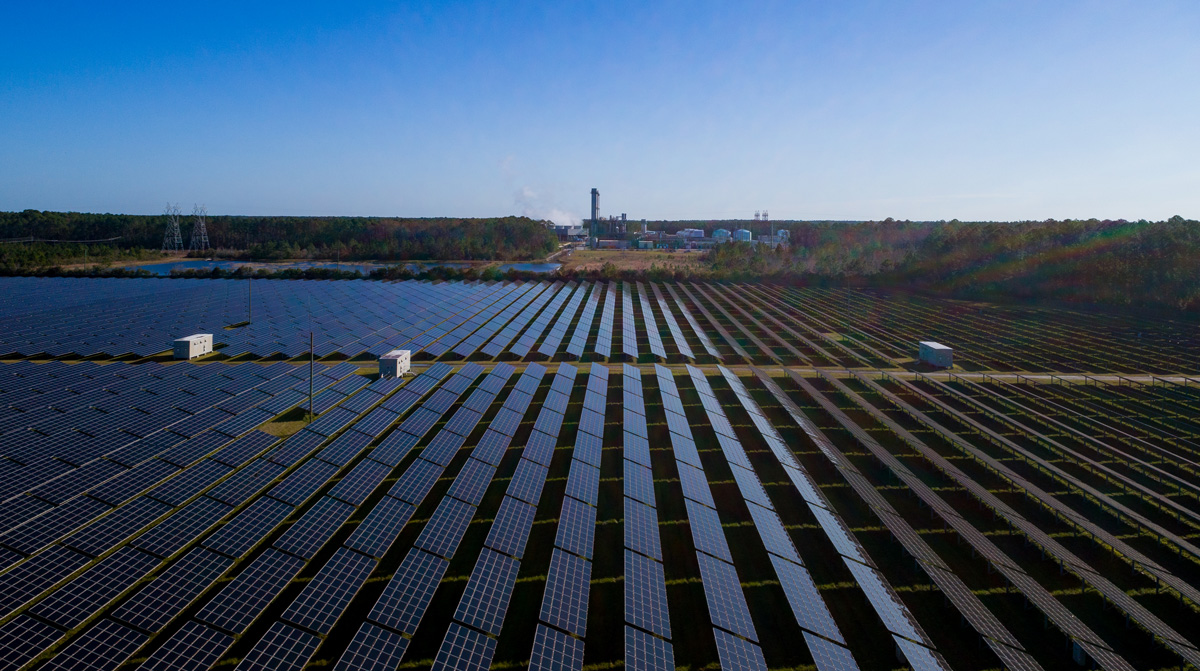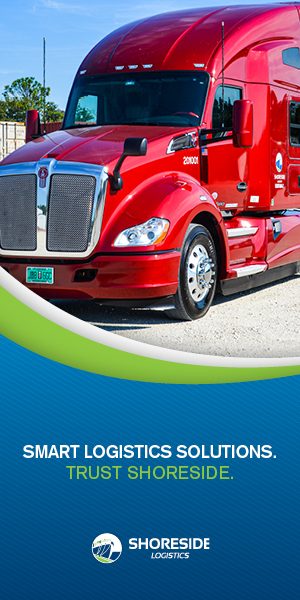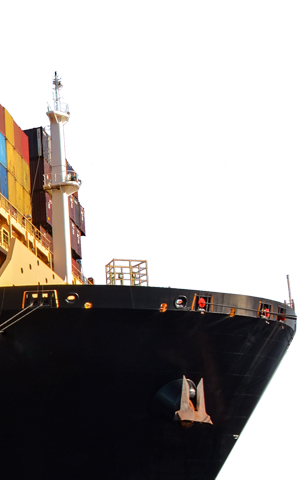Powered by the suN:
how the logistics industry is supporting the growth of solar power
- Home
- >
- Cargo Blog
- >
- Powered by the Sun: How the Logistics Industry is Supporting the Growth of Solar Power
solar is a natural fit in florida's renewable energy mix
Florida boasts 220 days of sunshine each year, according to JAXUSA Partnership, and the ‘Sunshine State’ is one of the nation’s top solar producing states. So it’s no surprise the state is currently home to 28 solar power plants in operation and six more coming online by the end of 2020.
Table of Contents
- The Growth of Solar
- FTZ No. 64 Offers Savings for Solar Shippers
- Focused on Solar
- Large Capacity for Growing Volumes
- US Producers Require Input Cargo
- Solar on the Scene
- Contact
Story by Lori Musser
Opportunities abound. Businesses and other power users can install their own solar energy fields – on a roof, on a retention pond, or in a field. Companies can service the solar industry, making component panels and parts, or handling the transportation and logistics thereof. Transportation companies can even incorporate solar power to help fuel trains, ships, cranes and other assets.
The Jacksonville Port Authority (JAXPORT) is strategically partnering with supply chain service providers, electrical authorities, and others to support the transportation and logistics needs for solar cargo, according to JAXPORT’s Director of Cargo Sales Frank Camp.
“We are seeing a lot of growth and investment in Florida, as well as in Georgia, the Carolinas, and Alabama,” said Camp. He added the region offers plentiful available and affordable contiguous acreage, making North Florida a new hot spot for solar.
JAXPORT’s proximity to this growth has led to an uptick in solar cargo. In 2018, the port handled 5,376 twenty-foot equivalent units (or TEUs, the industry standard for measuring containers) of solar panels and by the end of 2019, that figure had risen to 12,743 TEUs, a 137 percent increase. Camp said volumes remained steady into 2020 with more growth opportunities on the horizon.
As businesses and electric authorities look to grow their use of solar energy, Jacksonville’s transportation and logistics ecosystem is stepping up to help deliver the infrastructure needed, from warehousing space to safely store and deploy modules to the product’s final mile delivery.
The Growth of solar
Florida Power & Light Company, or FPL, is a subsidiary of NextEra Energy, Inc., the world’s largest generator of renewable energy from the wind and sun. FPL serves more than 10 million consumers across the state and its sister company Gulf Power serves almost a half-million more in the Florida Panhandle.
FPL has optimistic solar plans. The company’s “30-by-30” plan aims to make Florida a world leader in solar energy. By 2030, the company plans to install 30 million new solar panels, build 100-plus new solar energy centers, and generate energy that is 67 percent cleaner than the 2005 U.S. electric company average.
An FPL spokesperson said: “Our investments in affordable and clean energy continue to improve the efficiency of our system, reduce fuel consumption and emissions, and help keep costs down for our customers over the long term.”
In addition to the “30-by-30” plan energizing the push for solar in Florida – there is also the Florida Municipal Solar Project, one of the largest municipal-backed solar projects in the United States. The project, led by the Florida Municipal Power Agency (FMPA), will consist of five solar farms across 16 counties throughout the state equipped with approximately 1.5 million solar panels.
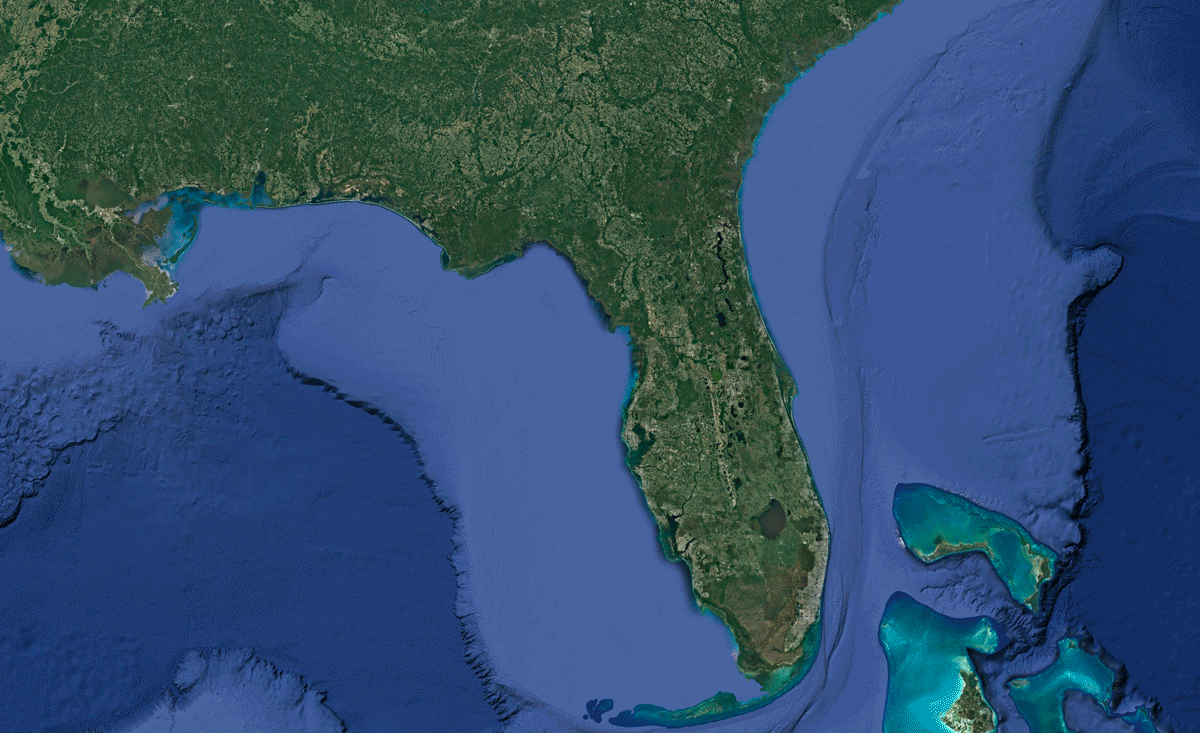
Electric authorities are not the only businesses taking advantage of the sun’s power. Warehouses and large buildings in Northeast Florida and beyond are being topped off with solar energy arrays to power operations and reduce businesses’ carbon footprint.
In 2017, IKEA built its 290,000-square-foot Jacksonville store with the ability to produce 2.8 million kilowatts each year. At the time of construction, IKEA’s then U.S. President, Lars Petersson, said IKEA was Florida’s largest non-utility private solar owner at the time – a title the company still holds to this day. Other top global brands are joining IKEA in their investment in solar including Apple, Amazon, Walmart and Target.
Also in Northeast Florida, Aqua Gulf, an asset-based transportation and logistics company that handles refrigerated and dry cargoes, launched its solar initiative. Aqua Gulf equipped its warehouse with a 62,000-square-foot solar array, comprised of 1,795 solar panels capable of generating 2.25 megawatts of power per day.
The company’s investment in solar helps ensure the reliability and resiliency of its facility, including 14,500-square-feet of sensitive temperature-controlled space.
“Since we went live in October 2018, we have generated almost 2 gigawatts (GW) of solar power. We believe strongly that our investment in solar is not only good for the environment but makes good economic sense,” said Aqua Gulf President Sergio Sandrin. “The impact is direct to our bottom line, allowing Aqua Gulf to continue to add to our workforce and will help fuel future expansion in Jacksonville.”
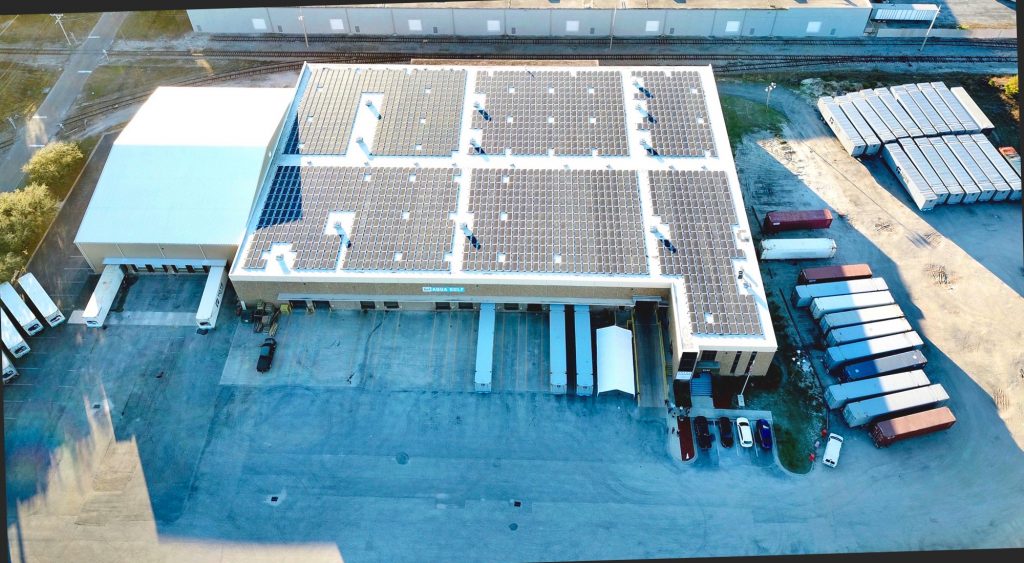
The company’s North Jacksonville facility, near JAXPORT’s Blount Island and Talleyrand marine terminals, now has regular grid power, solar power, and even a backup 200KW-generator. “We will not go off temperature,” said Scott Fernandez, Vice President of Business Development at Aqua Gulf. “Maintaining cold chain integrity is important.”
Not only is the company’s facility powered by the sun, but Aqua Gulf also handles solar cargo, Fernandez said. Its first shipment of 1,000 pallets arrived in Jacksonville from Turkey, a few years ago, and soon after Aqua Gulf became a hub for receiving, storing and distributing solar cargo throughout Florida and the rest of the country. “Solar project managers routinely choose Aqua Gulf to outsource the full logistics package, from port to project site,” said Fernandez.
He explained the inventory management and delivery process for this cargo is critical. “It is all scheduling, timing and coordination so crews can keep working and avoid delays in the project schedule,” said Fernandez.
FTZ No. 64 Offers Savings for Solar Shippers
JAXPORT serves as the grantee for Foreign Trade Zone (FTZ) No. 64 – the largest zone in Florida by area – encompassing nine counties and 5,000 square miles in Northeast Florida. Camp said there is an opportunity for duty deferral on solar cargo through the FTZ program. “It largely depends on several factors including the value of the cargo, duty rates, the timing of entry into the U.S., length of storage, and the timing of a sale to a customer,” he added.
Merchandise imports subject to higher duties do well in an FTZ. In this era of volatile trade sanctions, FTZs are attractive because they provide a business with flexibility in inventory management. The cargo can be held in the zone until the formal ‘entry’ of the cargo into the U.S. is more advantageous – allowing control of the cargo while managing cash flow.

focused on solar

Shoreside recently handled solar panels for projects in south and central Florida. For some projects, Morrison said, the company simply provides line-haul services to the installation site. However, because the sites are not equipped with much in the way of existing infrastructure, components must often be kept inventoried in a warehouse and delivered just in time. He explained the solar panels and/or frames are picked up at the port, offloaded nearby from 40-foot international containers, and then either warehoused or immediately transferred to 53-foot domestic containers for delivery to site.
The speedy offload process sets international containers up for a quick return to port; and because the faster the containers get back to port the better the ocean line’s asset utilization, ocean carriers like this kind of business. The transfer to higher-cube domestic trailers cuts out every sixth load, saving customers money.
For those shippers requiring warehousing, Shoreside Logistics pays special attention. From the moment it takes the panels into possession, through the transfers, storage and delivery, customer service reigns supreme. For one solar customer, Shoreside sent its warehouse manager out to the field delivery site to oversee the offload and ensure total customer satisfaction.
“We have quoted several more projects,” Morrison said. “We expect more growth in this sector as utilities move away from fossil fuels and look to renewable energy options.”
Shoreside Logistics recently received an FTZ designation to open up a variety of cost-saving benefits to customers, which, in addition to duty deferral and elimination, may include inverted tariff relief, inventory tax relief, and the ability to economically address damaged or non-conforming items, among others.
Morrison said the solar panels are packaged inside special cardboard containers on their pallets, which can be double stacked without damage, allowing warehouses to optimize floor capacity. “With this cargo, zero damage is an important goal,” said Morrison. He added it takes time to get the cargo from Vietnam, Malaysia, China or other sources, and components can’t be quickly replaced, so no damage is key for solar sites relying on a very tight schedule. “We are here, knowledgeable, experienced, and with capabilities to handle solar cargo start to finish, safely and on time,” said Morrison.
JZI IntermodaLogistics is a global 3PL based in Jacksonville that is also experienced in solar cargo. Chris Sloope, the company’s Vice President, said JZI has seen an increase in solar cargo RFPs recently and expects business to build due in large part to the experience as well as the breadth of services solar transportation and logistics demands.
“About a year ago, we began a project into Jacksonville that brought in 6,000 solar panels over six months, 20 or so containers at a time,” said Sloope. The company warehoused them a few weeks before delivery to a large site, and that service is key, Sloope shared. “In Jacksonville, not only can we help with customs clearance, storage and transport – we can provide cash flow and cost savings through our FTZ warehouse. We want to offer everything, and let the client use as many services as they like,” said Sloope.
Large Capacity for Growing Volumes
Jacksonville-based Patriot Rail & Ports provides rail and transportation services solutions throughout North America. In Jacksonville, the company offers stevedoring services at JAXPORT’s Talleyrand and Blount Island terminals.
Paul Tonsager is Chief Commercial Officer for Patriot Rail & Ports. He said there is a lot of volatility in the solar market, but Jacksonville is already an established player. To date, the company has handled approximately 15,000 pallets of solar panels and components. Tonsager anticipates future solar shipments will be subject to peaks and valleys, related to solar installation project timelines and trade issues. However, he said that working closely and preplanning with NVOCC partner Aqua Gulf will help to accommodate the cargo flows while providing best-in-class service.
“Experience, capacity, service and landed cost is what the manufacturers and project developers are looking for,” said Tonsager. Also important is the port’s efficiency. “It is a big advantage if you can turn those boxes quickly. Our 30-minute offload speed can allow panels to be delivered to site the same day if needed,” Tonsager said.
JAXPORT offers low congestion and quick turn times across its three container terminals – with stevedores reporting turn times as low as 18 minutes for two-way moves. Terminals are also located close to three major interstates, speeding up the delivery of products from port to next destination.
US producers require input cargo
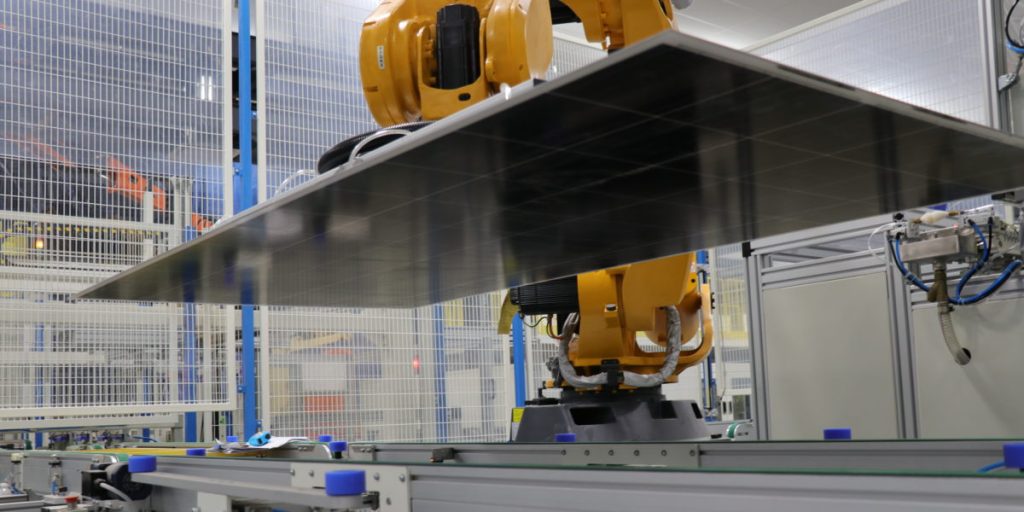
Some solar modules used in the U.S. are produced domestically. Jacksonville is home to one of the largest U.S. solar manufacturing plants, operated by JinkoSolar (U.S.) Inc. The high-tech facility was designed to produce the company’s Eagle G2 modules, including versions for the residential market as well as for larger projects.
The company chose to locate in Northeast Florida for the area’s favorable tax climate and transportation infrastructure, including its deep-water port. “With lots of incoming material and finished products going out to all regions of the U.S., the transportation and logistics is essential to JinkoSolar’s operation,” said Jeff Juger, Director of Business Development for JinkoSolar in a 2018 interview about the company’s Northeast Florida facility.
Three weekly ocean carrier direct calls from the Asian market at JAXPORT helps companies like JinkoSolar. The port also offers direct and transshipment carrier services from other sourcing markets in Vietnam, Hong Kong, Malaysia, India, the Caribbean and more.
Did you know?
JAXPORT offers connections to more than 140 ports worldwide.
solar on the scene
It is no longer science fiction. Solar energy is being captured in Florida and around the world. The 2019 Solar Means Business Report produced by the Solar Energy Industries Association found two-thirds of all solar capacity was installed since 2015 and the growth potential continues to climb.
The Jacksonville port gateway, already well-known for championing an important and growing LNG hub, has set its sights on doing the same for the solar industry, providing widespread economic opportunities in Northeast Florida in the process.
